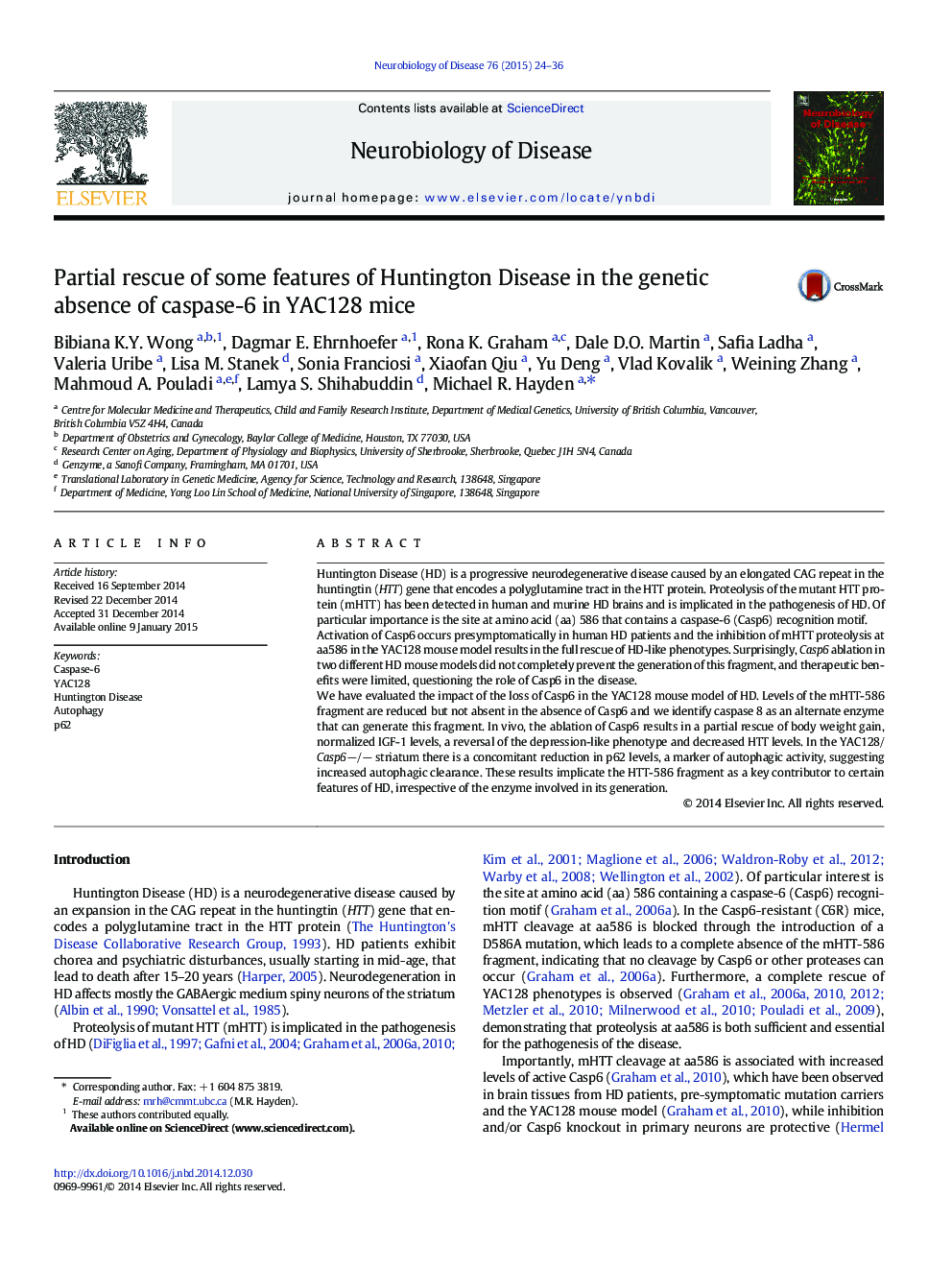| Article ID | Journal | Published Year | Pages | File Type |
|---|---|---|---|---|
| 6021724 | Neurobiology of Disease | 2015 | 13 Pages |
Abstract
We have evaluated the impact of the loss of Casp6 in the YAC128 mouse model of HD. Levels of the mHTT-586 fragment are reduced but not absent in the absence of Casp6 and we identify caspase 8 as an alternate enzyme that can generate this fragment. In vivo, the ablation of Casp6 results in a partial rescue of body weight gain, normalized IGF-1 levels, a reversal of the depression-like phenotype and decreased HTT levels. In the YAC128/Casp6â/â striatum there is a concomitant reduction in p62 levels, a marker of autophagic activity, suggesting increased autophagic clearance. These results implicate the HTT-586 fragment as a key contributor to certain features of HD, irrespective of the enzyme involved in its generation.
Related Topics
Life Sciences
Neuroscience
Neurology
Authors
Bibiana K.Y. Wong, Dagmar E. Ehrnhoefer, Rona K. Graham, Dale D.O. Martin, Safia Ladha, Valeria Uribe, Lisa M. Stanek, Sonia Franciosi, Xiaofan Qiu, Yu Deng, Vlad Kovalik, Weining Zhang, Mahmoud A. Pouladi, Lamya S. Shihabuddin, Michael R. Hayden,
